Creating an icon - Behind the scenes at Paris-Roubaix Femmes
Only in its second year, the Paris-Roubaix Femmes is not just a gruelling day for the riders, but a logistical and organisational challenge for those behind the scenes - Amy Sedghi speaks to the people helping to create an icon
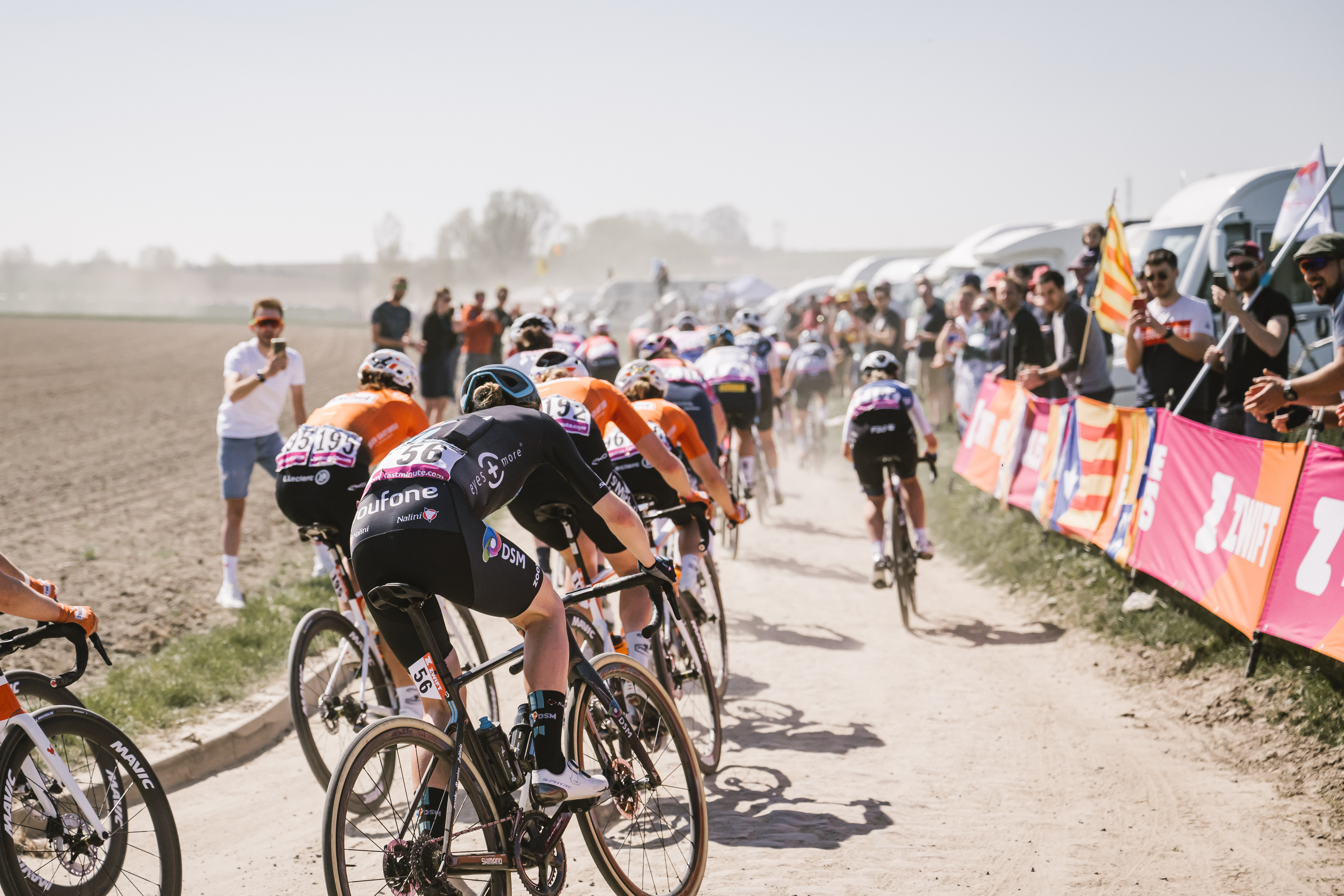
As the sun beat down on the famed cobbles of Paris-Roubaix Femmes avec Zwift last Saturday, all eyes and talk were on who would be the successor to Lizzie Deignan after her historic win in the inaugural edition last year. Were Lotte Kopecky's wins at Strade Bianche and Ronde van Vlaanderen a sign of things to come? Would one of the many debutants create a huge upset and snatch the cobblestone trophy from under the noses of the big-name riders? And, what’s this? Marianne Vos isn't even on the start line?! In the end, Trek-Segafredo’s Elisa Longo Borghini raced to victory following a spectacular counterattack with 33kms to go.
But whilst attention at this highly anticipated and brutal Monument primarily focuses on the form of the riders, and ultimately who'll win, there's a vast operation behind the scenes as it rolls into town.
Preparation for the Queen of Classics begins months before the team buses even start their engines and hit the roads. Pass along the route in early March and you may well find the group of cobblestone connoisseurs known as Les Aims de Paris (The Friends of Paris-Roubaix) on their hands and knees scrutinising the surface. Along with local volunteers from nearby agricultural colleges, they’re dedicated to protecting, maintaining, and renovating the historic cobbled sectors. Just a few days before the Paris-Roubaix Femmes, the group were out with their wheelbarrows, trowels, and hammers, neatly slotting cleaned cobblestones into a section of the course that needed some love.
Last moments. 💪⏳ pic.twitter.com/TNumFwt1ZpApril 12, 2022
Racing over the cobbles brings with it many demands, and room for mishaps. At this race - arguably more so than any other - the role of a team mechanic is crucial. “With a race like Paris-Roubaix, you want to have done most of the prep in the weeks before. You don’t want to be making decisions the day before a race,” explains Pat Ryan, a mechanic with Team BikeExchange-Jayco. “It’s the race that puts the bike under the most stress of the season probably, so if something goes wrong, it can be race over.”
The riders will have already tried different tyres and pressures during recons as far back as six weeks before, he describes, but Ryan and his team will have been busy looking at options further back than that. “A road race is down to science. You know the rolling resistance and that, [so] you can choose the right option. But here, it’s more the rider’s feeling.”
As the peloton rolls out into the French countryside, Ryan will be racing to three different locations with spare wheels and bottles. The first cobbled sector has been highlighted as a scene for potential crashes, as riders will likely sprint onto it, says Ryan. Then he’ll make his way to spots at 72km and 98km along the course. Another team mechanic will be in the support car, his handwritten map of the bikes arranged on the roof taped to the headrest, while their third mechanic will be responsible for driving their truck to the finish line.
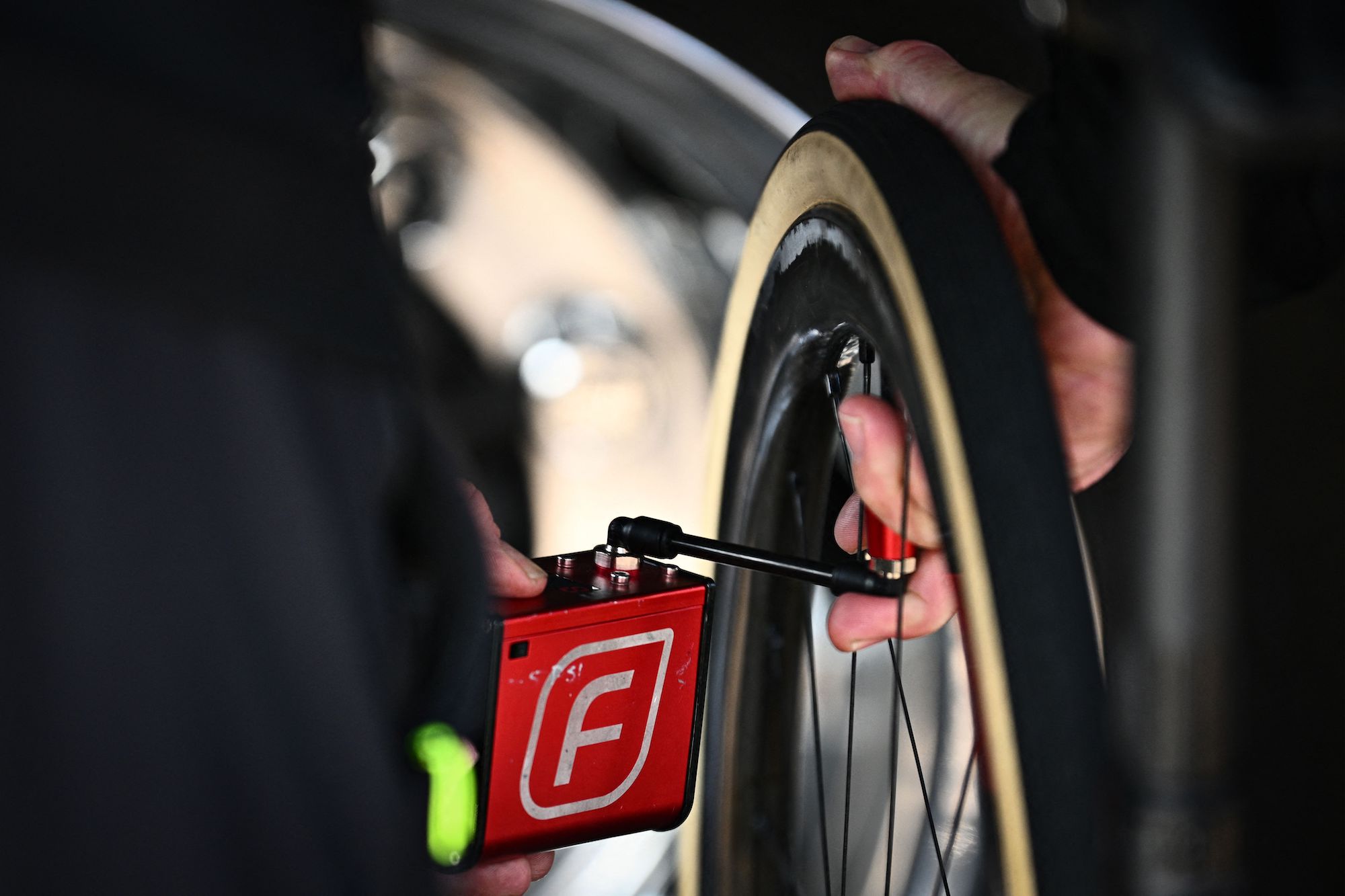
Preparation is key for Paris-Roubaix, and teams will spend months getting elements like tyre pressure correct
As well as each team’s own set of mechanics, the Shimano Neutral Service - or 'angels in blue overalls', as they’ve been described - are a key component in the smooth running of this most unpredictable and testing of races. Split between the front and back of the race, the team providing neutral support is divided up over four motorbikes and four cars, each carrying a driver and a mechanic. The years of experience amongst them tally up and they’re well-versed in racing, many having competed themselves. “With the cobblestones, it makes it harder for everyone, especially the riders because they are always fighting to be in a good position,” explains Nico Verhoeven. “The team cars are always far behind, and that makes it for us, really important, [to help] the riders immediately, because otherwise they’re out of the race.”
Get The Leadout Newsletter
The latest race content, interviews, features, reviews and expert buying guides, direct to your inbox!
Having previously worked with Jumbo-Visma for more than two decades, he’s well-experienced and seems unfazed by the challenging day the Hell of the North promises. “The only thing that is new is that there’s now two races. [Whether] women’s or men’s - it’s still the same game." The hardest part of the afternoon, he says with a laugh, is cleaning up after the race and getting everything ready to go again for the next day, when the men’s peloton turns up.
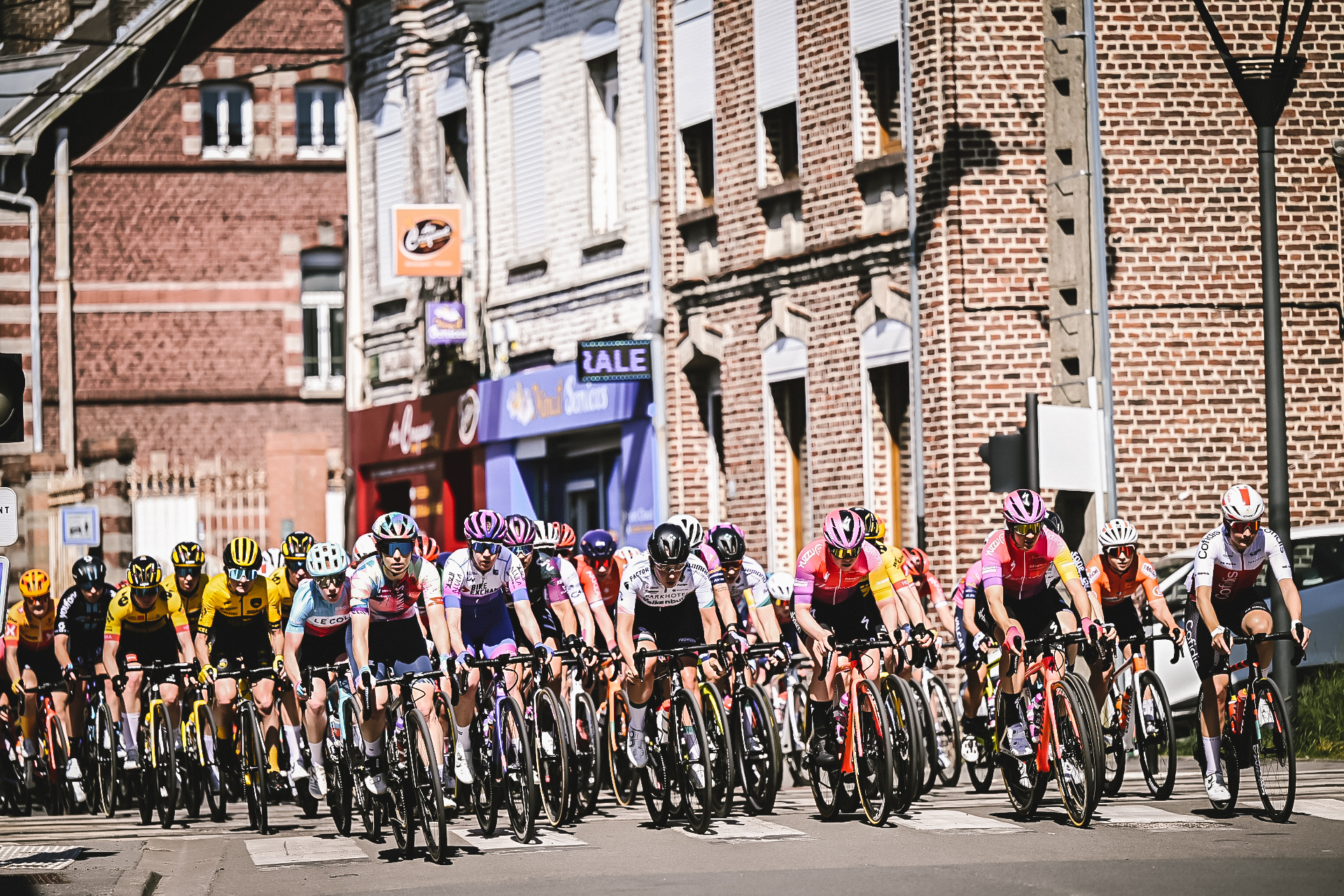
The women's peloton at the start of the 2022 Paris-Roubaix Femmes
Despite the men’s Paris-Roubaix being one of the oldest and most highly anticipated cycling races on the professional calendar, it’s taken 117 years for female riders to have their own version. Given that the Paris-Roubaix Femmes is only in its second edition, almost half of the female starting riders were debutants. Eighteen-year-old Flora Perkins of Le Col Wahoo, was one such rider, having only learnt a week before the event that she'd be spending her Saturday afternoon tackling the pavé. A text to her parents followed: were they up for helping out the team on the roadside by holding spare wheels and bottles? "It was like, okay, there’s a whole level of stress that goes with that," shares her dad, with a light laugh. Her older brother, Rufus, 20, was game though and he stepped up, riding in the team car, holding wheels on the side of the dusty roads and even handing his younger sister a bottle as she whizzed past.
As he relaxes on the grass opposite the team bus, he describes his first-time experience at the race: “It’s great to see the teamwork behind it. There’s a lot of people behind the scenes making sure that the riders do as best as possible. It’s great to see the riders in the zone doing their thing.” And how is it watching your sister race the Hell of the North? “Really fun,” he answers. “I’m very proud of her.”
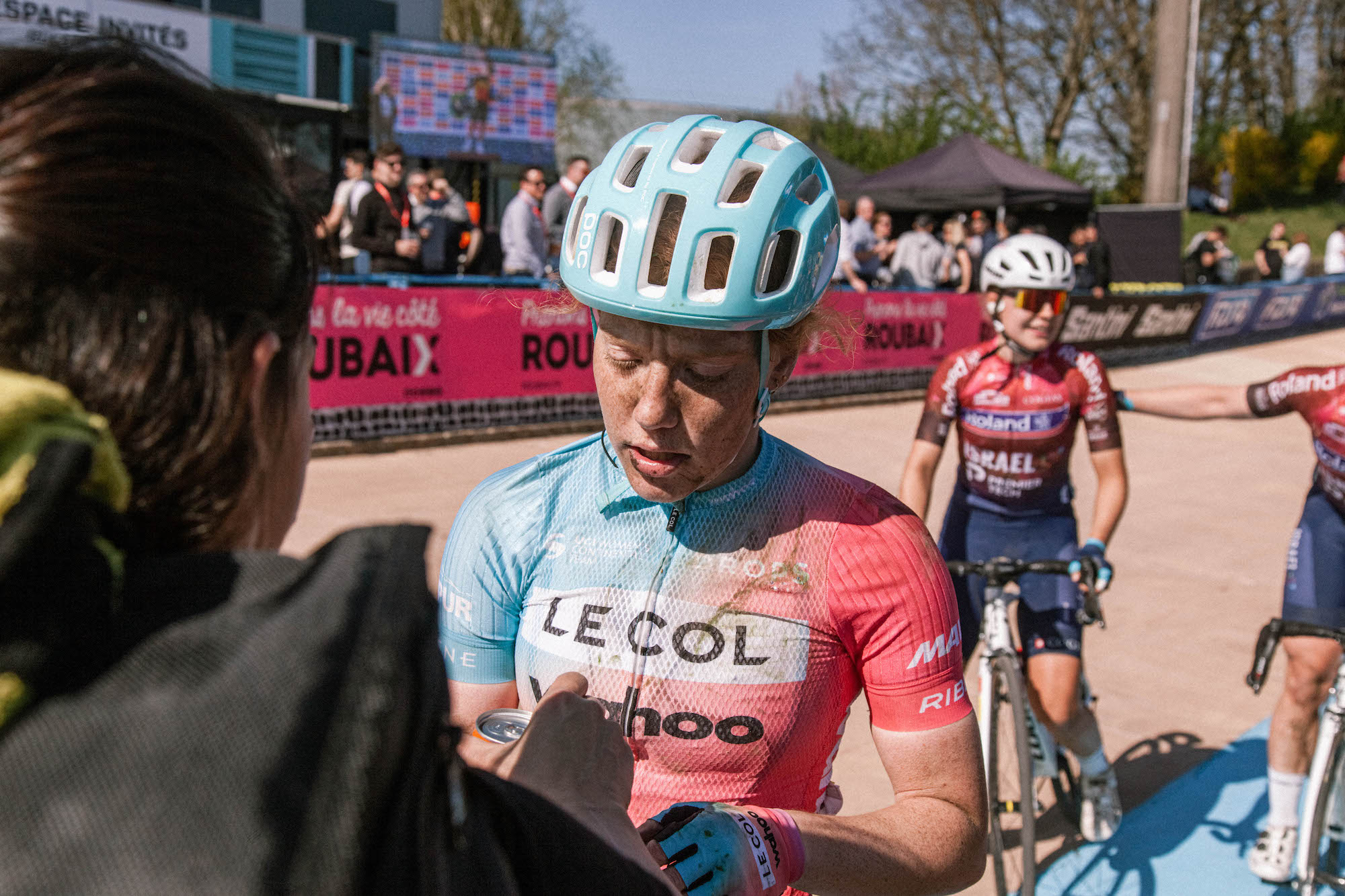
18-year-old Flora Perkins was one of many debutants at the second Paris-Roubaix Femmes
Having raced four times over a 12-day period, her father interjects to joke (semi-seriously) about how the in-between days have provided handy downtime for Flora to get stuck into her A-level revision. “She’s been getting up early [before the team] to hit the books,” he says with admiration. What really underlines how momentous an occasion this is for the young rider from south-east London, is a story her father tells of how this time last year after having driven Flora up to Harrogate, he waited on the cold roadside holding out a bottle for her. Now he, along with her mother and brother, are waiting patiently for Flora to return from the iconic showers of the Paris-Roubaix velodrome before she’ll be swept into a debrief by her team. They left their home in London at 4.30am to be here and soon they'll be back on the road, whilst Flora stays with the team.
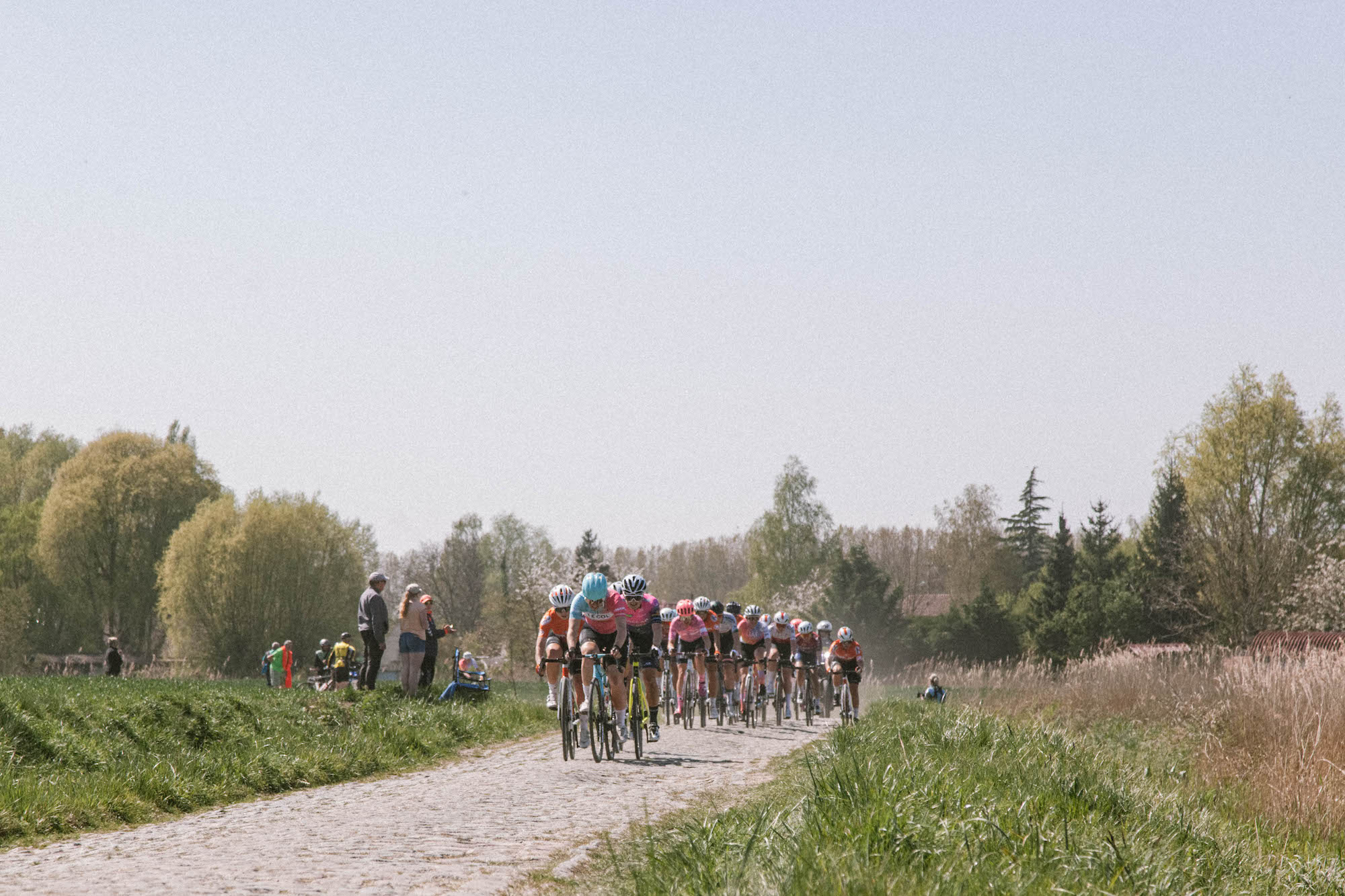
British team Le Col-Wahoo lead over a sector at Paris-Roubaix Femmes 2022
“Yeah, it was quite cool getting to the velodrome today, but I think I’m too tired for it to hit yet,” she laughs, in response to being asked about her 'day in hell'. “I wasn’t expecting to do this, so it was kind of spur of the moment and you don’t have time for it to build up or [to] get too anxious. There was no pressure. I was just trying to do the job I was given...you just crack on with it,” she says with a grin.
As riders crossed the finish line in the velodrome and came to a stop, joy, and pain etched on their faces, a flurry of activity ensues. Team-mates, photographers and journalists all rush towards the riders, and for the winner, that chaos is only intensified. One of the first people to embrace Longo Borghini as she crossed the line and sank to the floor, was Trek-Segafredo soigneur, Geerike Schreurs. A hefty backpack on her shoulders containing snacks, recovery drinks, clothing and other essentials symbolises her job of having readily at hand whatever the riders need. Post-podium, as the Italian winner is interviewed by eager press, Schreurs stands close by holding the bouquets presented to Longo Borghini and teammate (third-place) Lucinda Brand in one hand. In the other, Schreurs clutches a net bag of dirty kit.
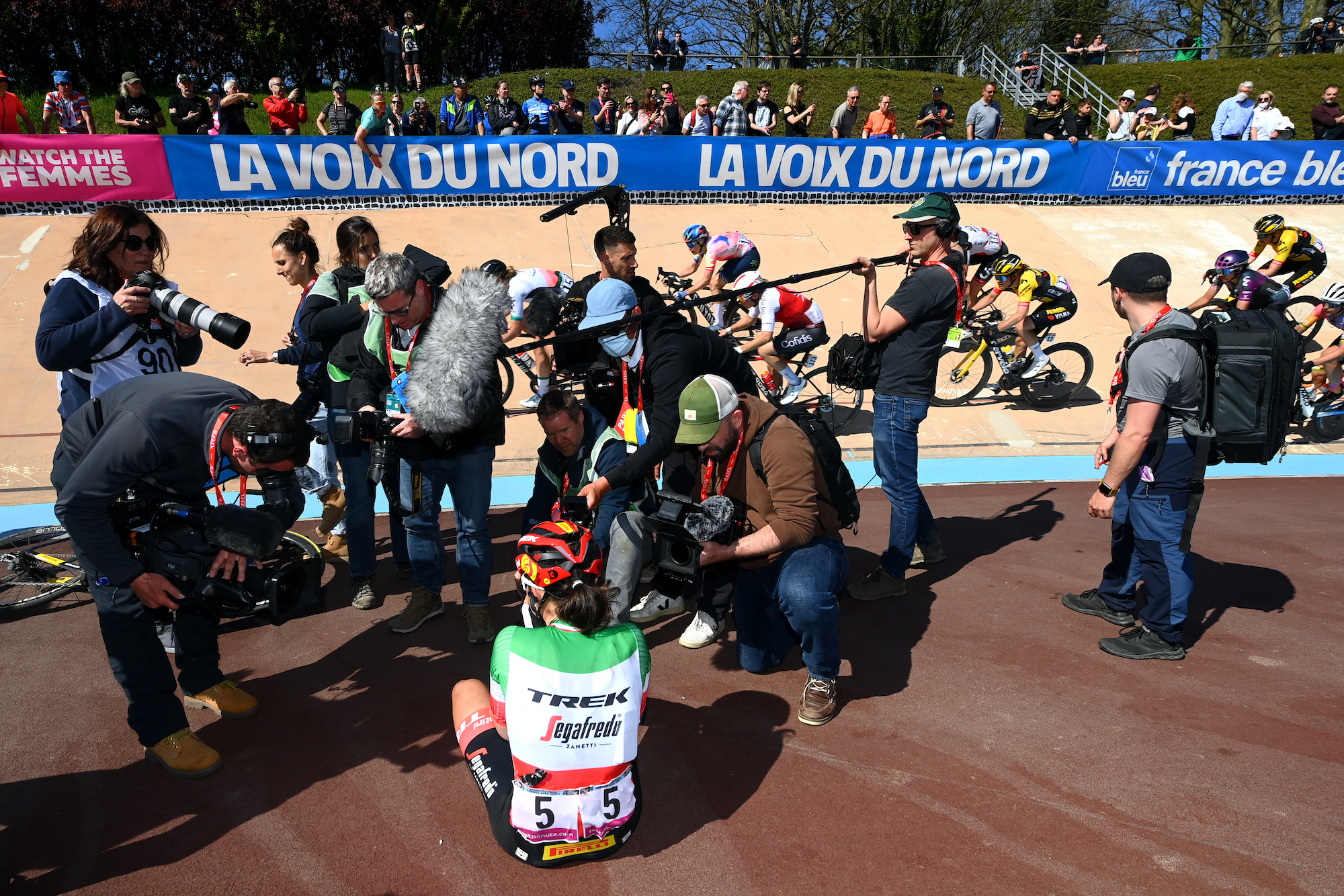
Elisa Longo Borghini surrounded by photographers at the finish of the 2022 Paris-Roubaix
Schreurs has been up since 6.30am, although she casually drops in that she squeezed a 10km run with her team into her morning before getting down to business for the day. Such is the bone-jangling toughness of the Hell of the North that soigneurs are at hand to help tired riders off their bikes at the end, as well as passing recovery drinks and cans of fizzy drinks. After the rider interviews are done, they’ll be off to doping control, explains Schreurs, before heading back to the team bus.
Someone who’s been on the ground in the lead-up to the Paris-Roubaix Femmes and watching the race excitedly is Kate Veronneau, Zwift’s director of content and women’s strategy. Herself an ex-competitive road racer in the United States and friendly with many of the names in the women’s peloton and their teams, Veronneau knows only too well what it means to bring a major sponsor to a women’s cycling race. “There’s so much personal passion,” she says of Zwift’s decision to sponsor the Paris-Roubaix Femmes as well as the upcoming Tour de France Femmes. “I’ve followed the scene very closely over the years and I care a lot about it.”
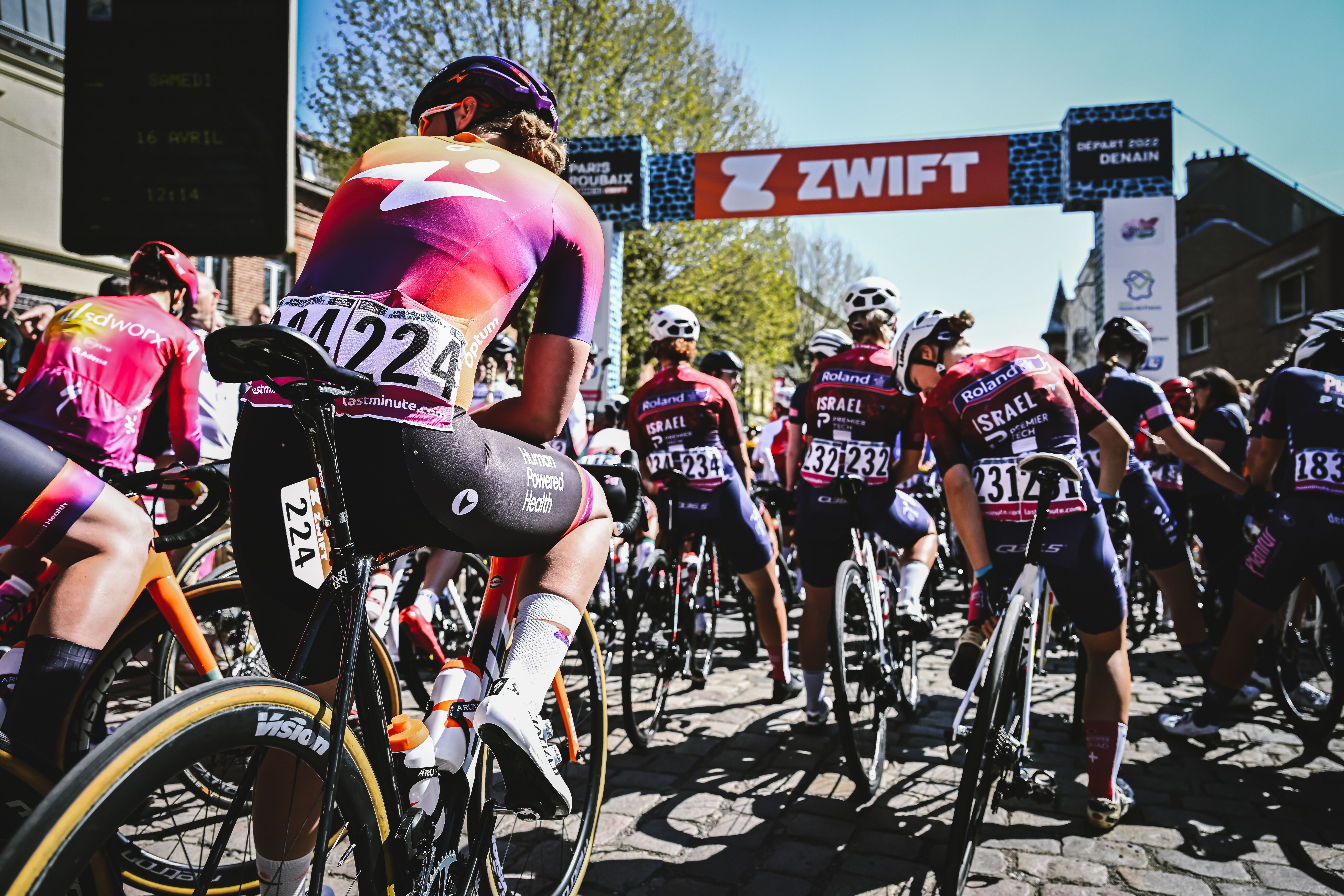
Zwift is in for the long haul at Paris-Roubaix Femmes, saying the race 'is not a box ticking exercise'
“The women don’t suffer any less than the men do,” she says openly, saying getting involved in the female edition of both famed French races was “an easy horse to get behind.” Financially for a company like Zwift, it also makes sense: women are the fastest-growing demographic on the subscription platform, while viewership for women’s racing, such as at Flanders, has seen increased interest . But Veronneau is adamant that the support isn’t just a box-ticking exercise. “It’s all about building sustainable models," she states. "We have a four-year sponsorship, so we can really develop it each year,” she explains, adding that one aim is to discover ways to expose women’s racing and Paris-Roubaix Femmes to a wider audience.
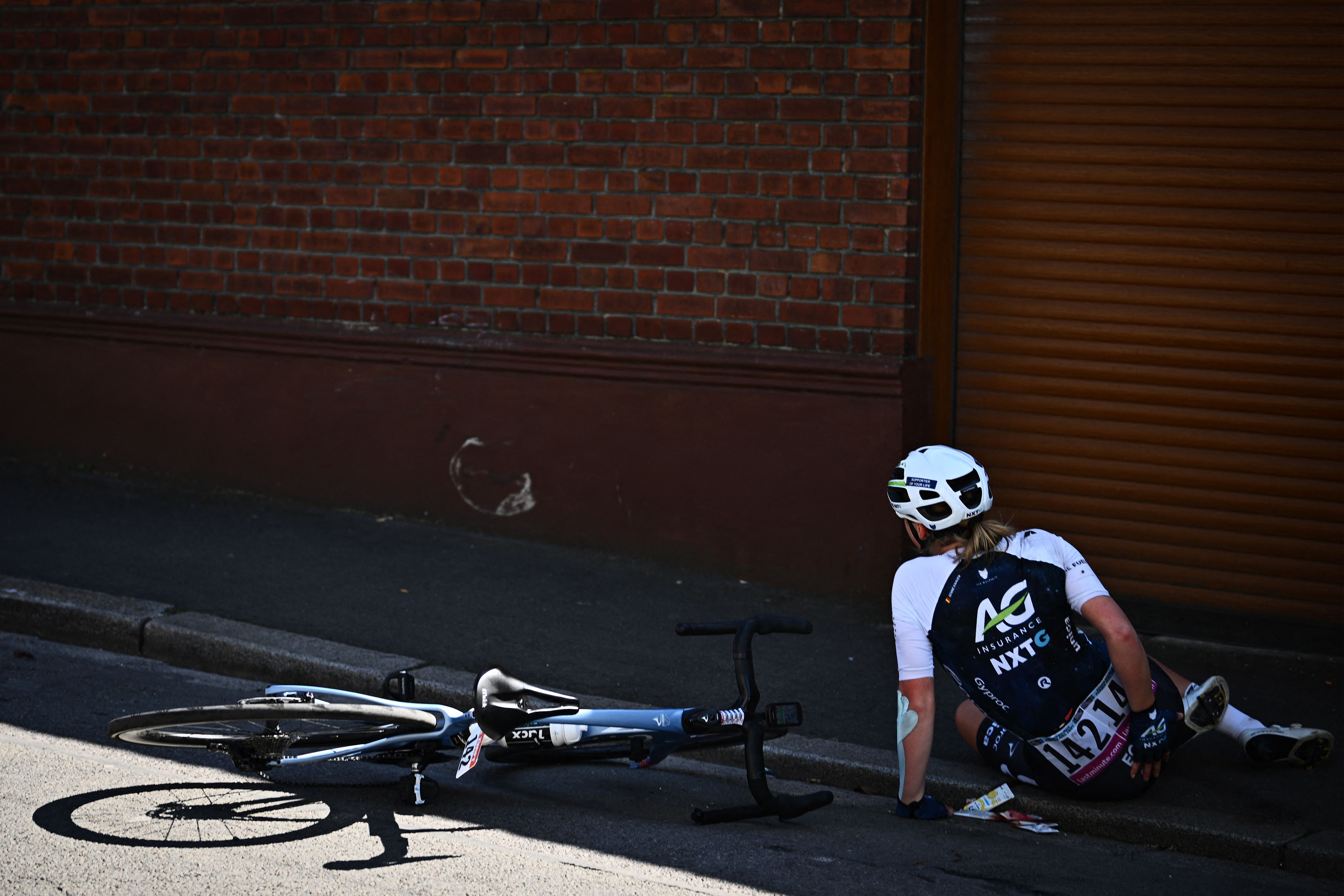
“The women don’t suffer any less than the men do”
It feels like a monumental time in women’s professional cycling, stresses Veronneau. A peek behind the curtain of this second edition of Paris-Roubaix Femmes, only brings home the level of support, time, and energy needed to make a race like this possible. As the mechanics jet wash the bikes, banners on the velodrome are ripped down and replaced in time for the men’s race tomorrow and the riders rub off the last vestiges of dust and grime from their faces, there’s a quiet in the velodrome which contrasts with the excited roars of the crowds earlier. Paris-Roubaix Femmes may only be two-years-old, but one thing is clear: there’s a lot of people already invested in making this just as iconic as the men’s.

Thank you for reading 20 articles this month* Join now for unlimited access
Enjoy your first month for just £1 / $1 / €1
*Read 5 free articles per month without a subscription

Join now for unlimited access
Try first month for just £1 / $1 / €1
-
 'It took everything' - Puck Pieterse outclimbs Demi Vollering to win La Flèche Wallonne
'It took everything' - Puck Pieterse outclimbs Demi Vollering to win La Flèche WallonneDutch 22-year-old shows Classics pedigree with first one-day victory
By Tom Davidson
-
 Tadej Pogačar flies to dominant victory at La Flèche Wallonne
Tadej Pogačar flies to dominant victory at La Flèche WallonneSlovenian takes second win at Belgian classic ahead of Kévin Vauquelin and Tom Pidcock
By Tom Thewlis
-
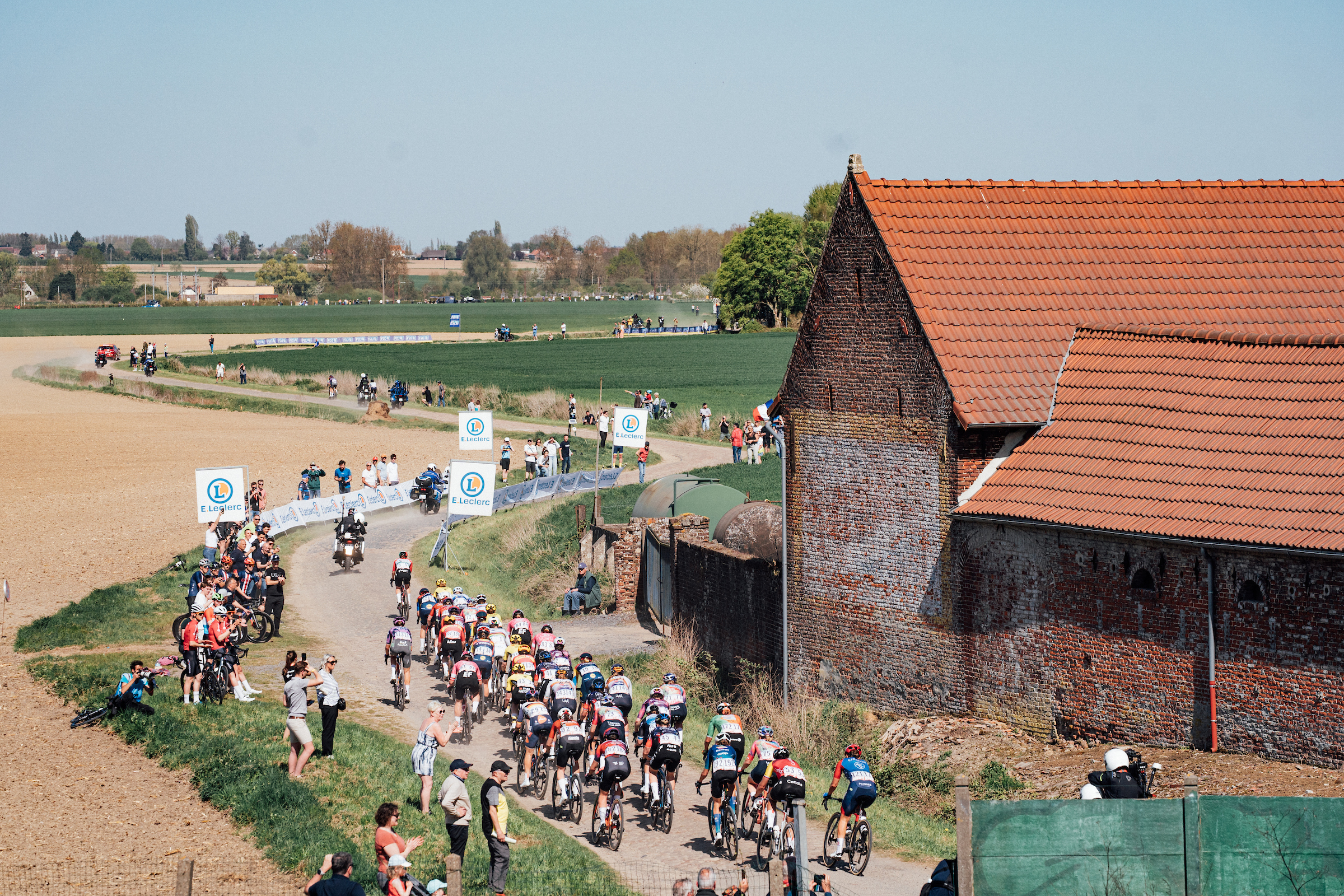 I went to Paris-Roubaix Femmes and was shocked at how it is still treated as secondary to the men’s race
I went to Paris-Roubaix Femmes and was shocked at how it is still treated as secondary to the men’s raceThe women’s version of the Hell of the North is five years old, but needs to be put more on equal footing with the men
By Adam Becket
-
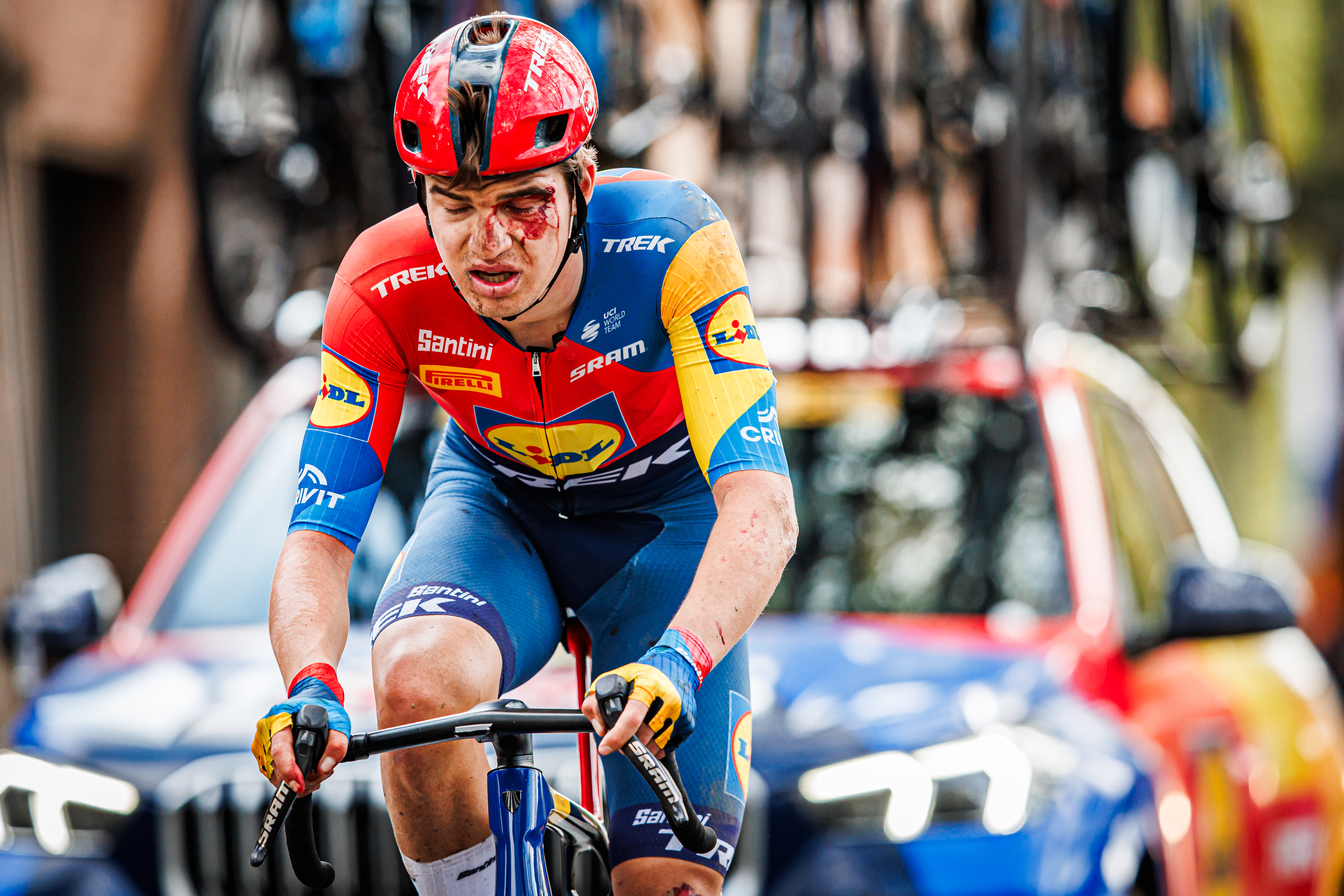 Broken hips, hands, and collarbones: Paris-Roubaix's lengthy injury list lays bare brutality of race
Broken hips, hands, and collarbones: Paris-Roubaix's lengthy injury list lays bare brutality of race"It probably wasn't the best idea to continue," says one of weekend's many wounded riders
By Tom Davidson
-
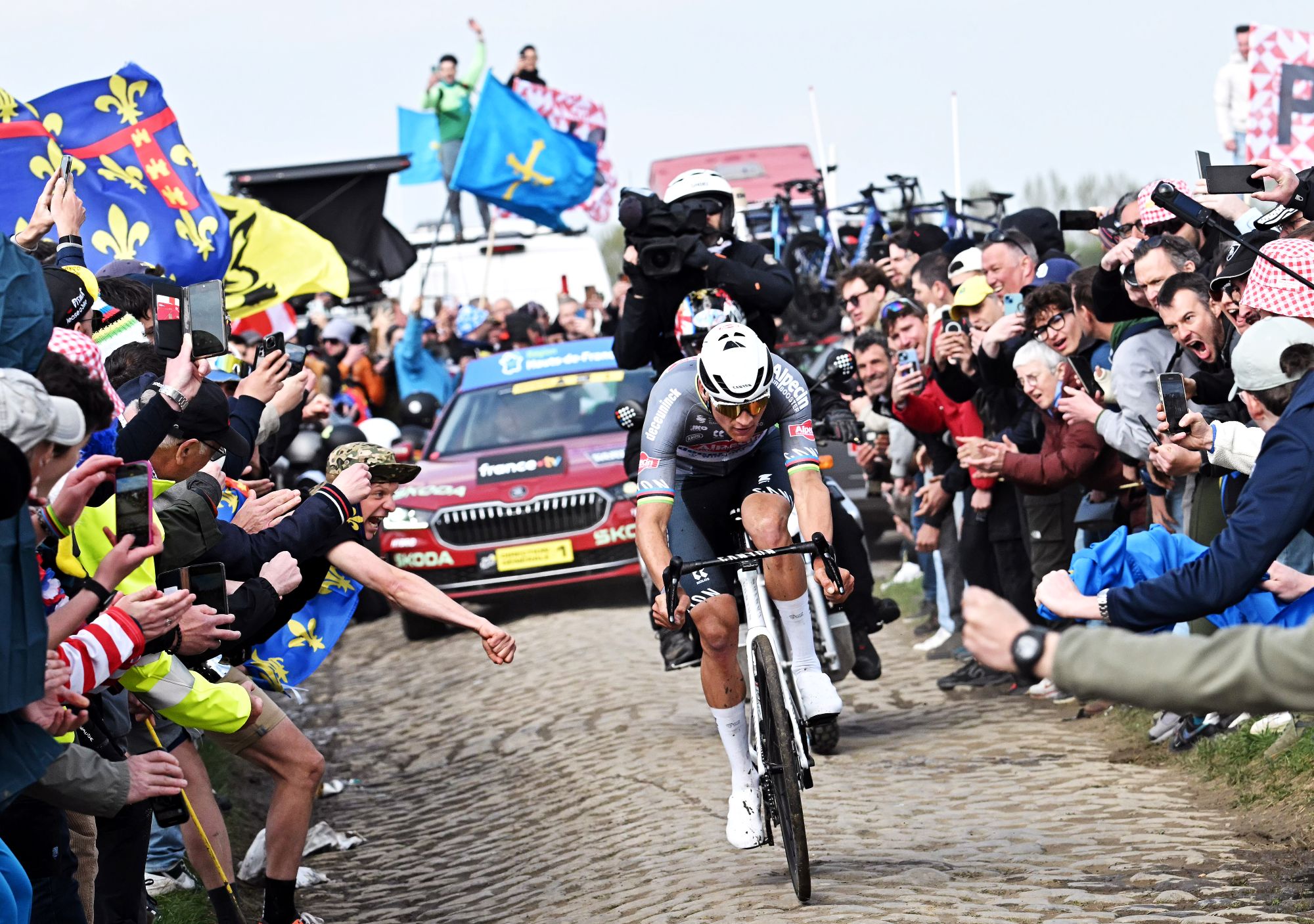 Professional riders need more protection from mindless 'fans' at major races to avoid another Mathieu van der Poel Paris-Roubaix bottle incident
Professional riders need more protection from mindless 'fans' at major races to avoid another Mathieu van der Poel Paris-Roubaix bottle incidentCycling's authorities must do everything within their power to prevent spectators from assaulting riders
By Tom Thewlis
-
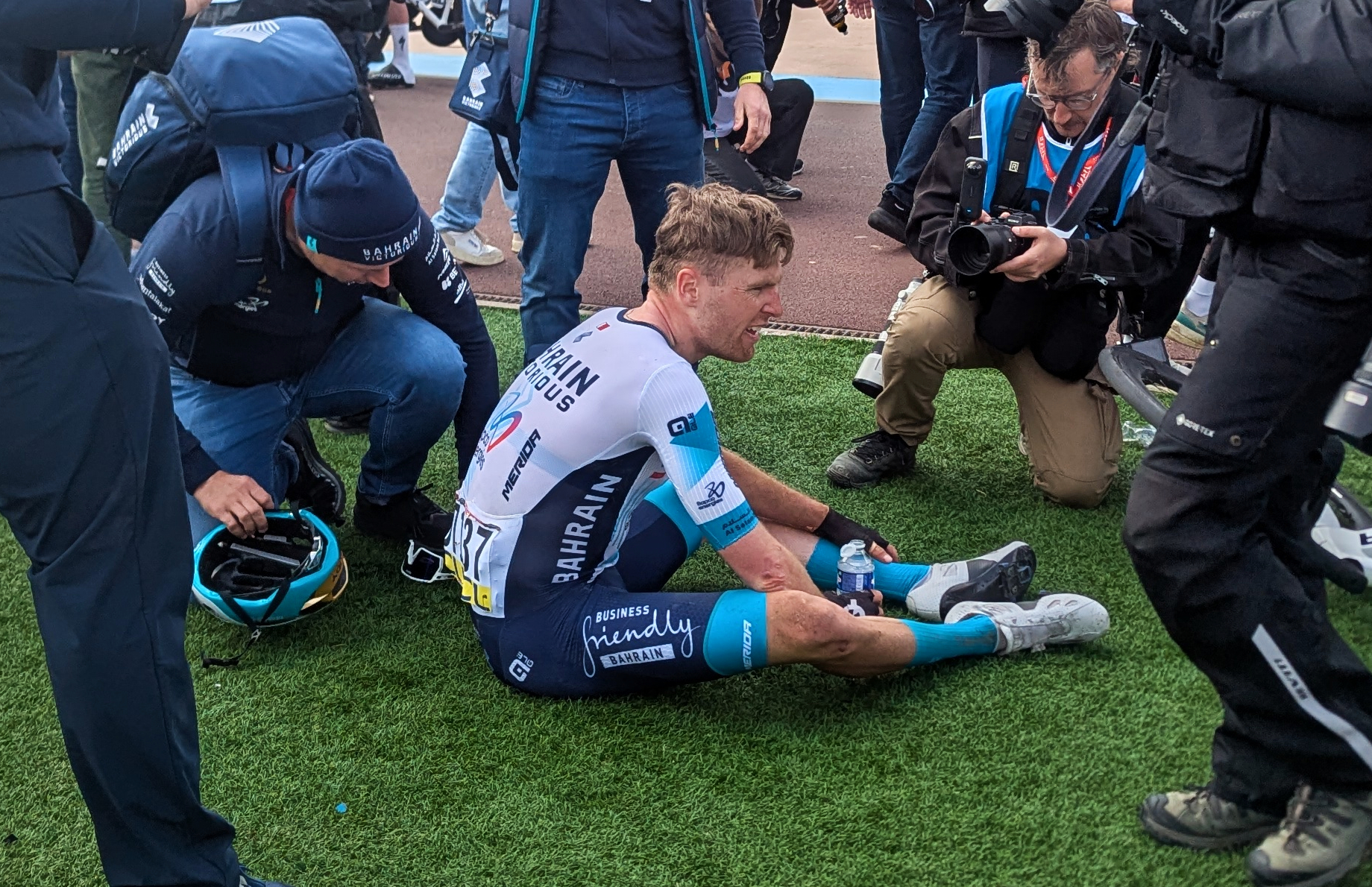 'I'll take a top 10, that's alright in the end' - Fred Wright finishes best of British at Paris-Roubaix
'I'll take a top 10, that's alright in the end' - Fred Wright finishes best of British at Paris-RoubaixBahrain-Victorious rider came back from a mechanical on the Arenberg to place ninth
By Adam Becket
-
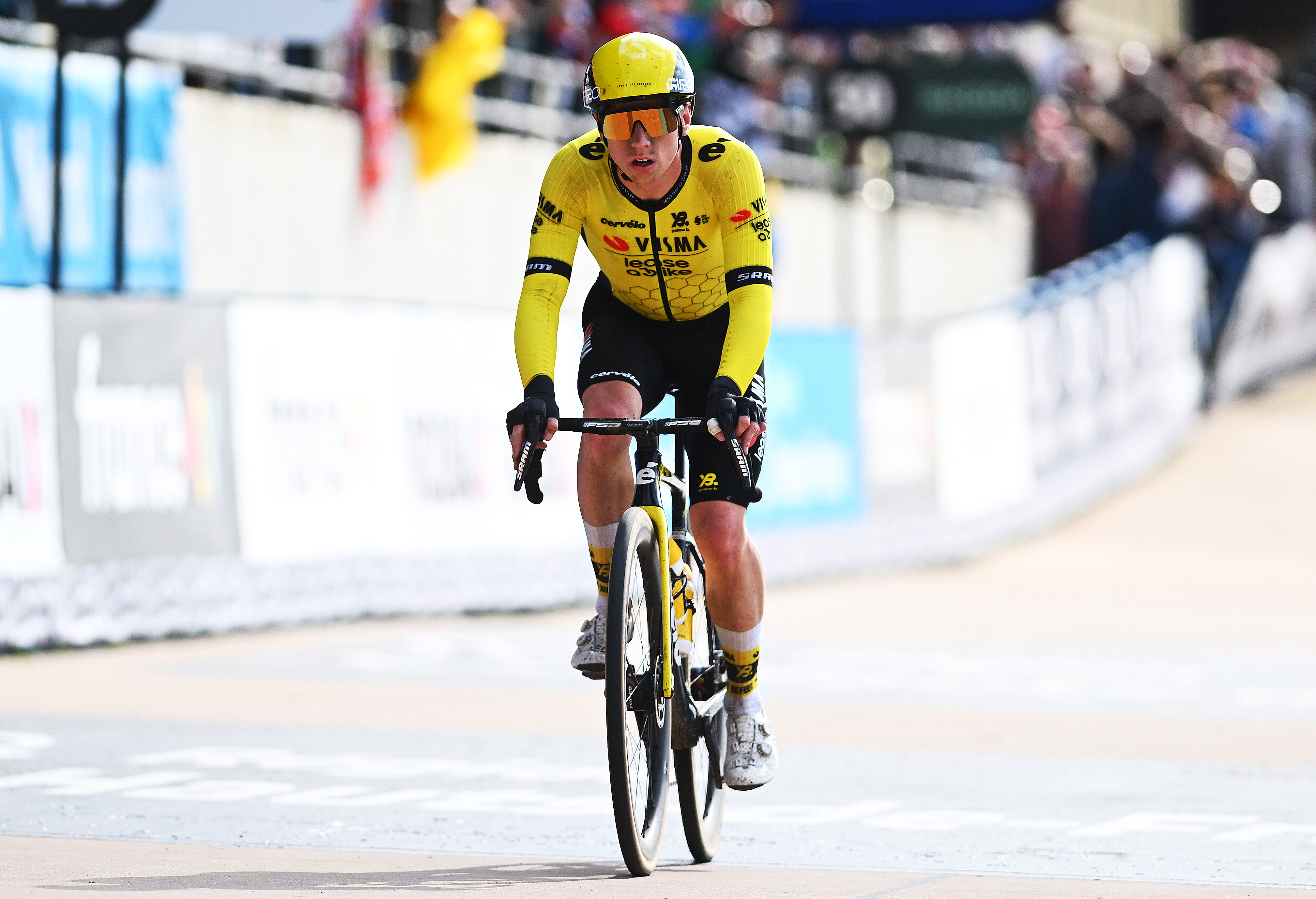 'This is the furthest ride I've actually ever done' - Matthew Brennan lights up Paris-Roubaix at 19 years old
'This is the furthest ride I've actually ever done' - Matthew Brennan lights up Paris-Roubaix at 19 years oldThe day's youngest rider reflects on 'killer' Monument debut
By Tom Davidson
-
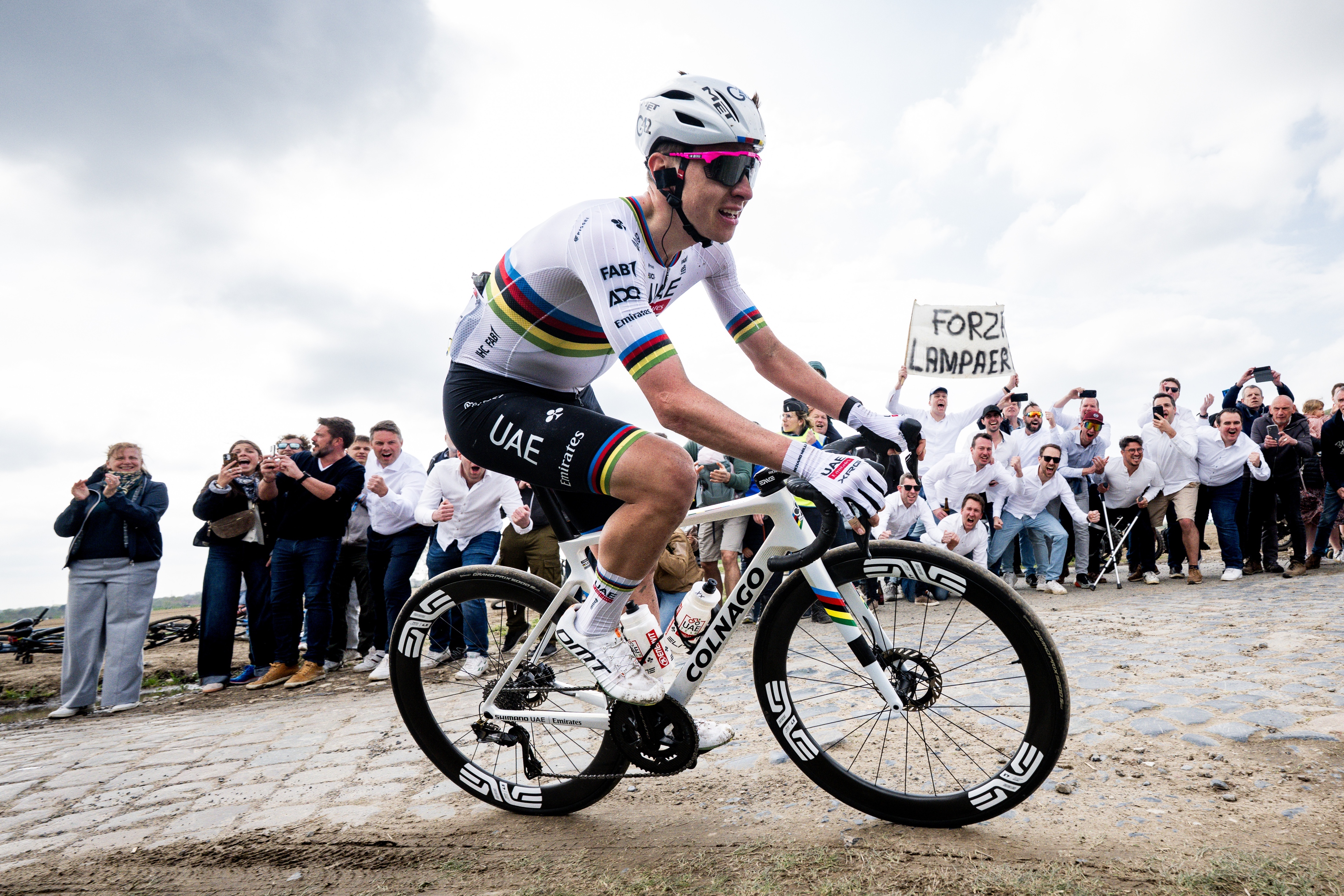 'One of the hardest races I've ever done in my life' - Tadej Pogačar finishes runner-up on Paris-Roubaix debut after crash
'One of the hardest races I've ever done in my life' - Tadej Pogačar finishes runner-up on Paris-Roubaix debut after crashWorld champion reacts to 'extremely hard' battle with Mathieu van der Poel
By Tom Davidson
-
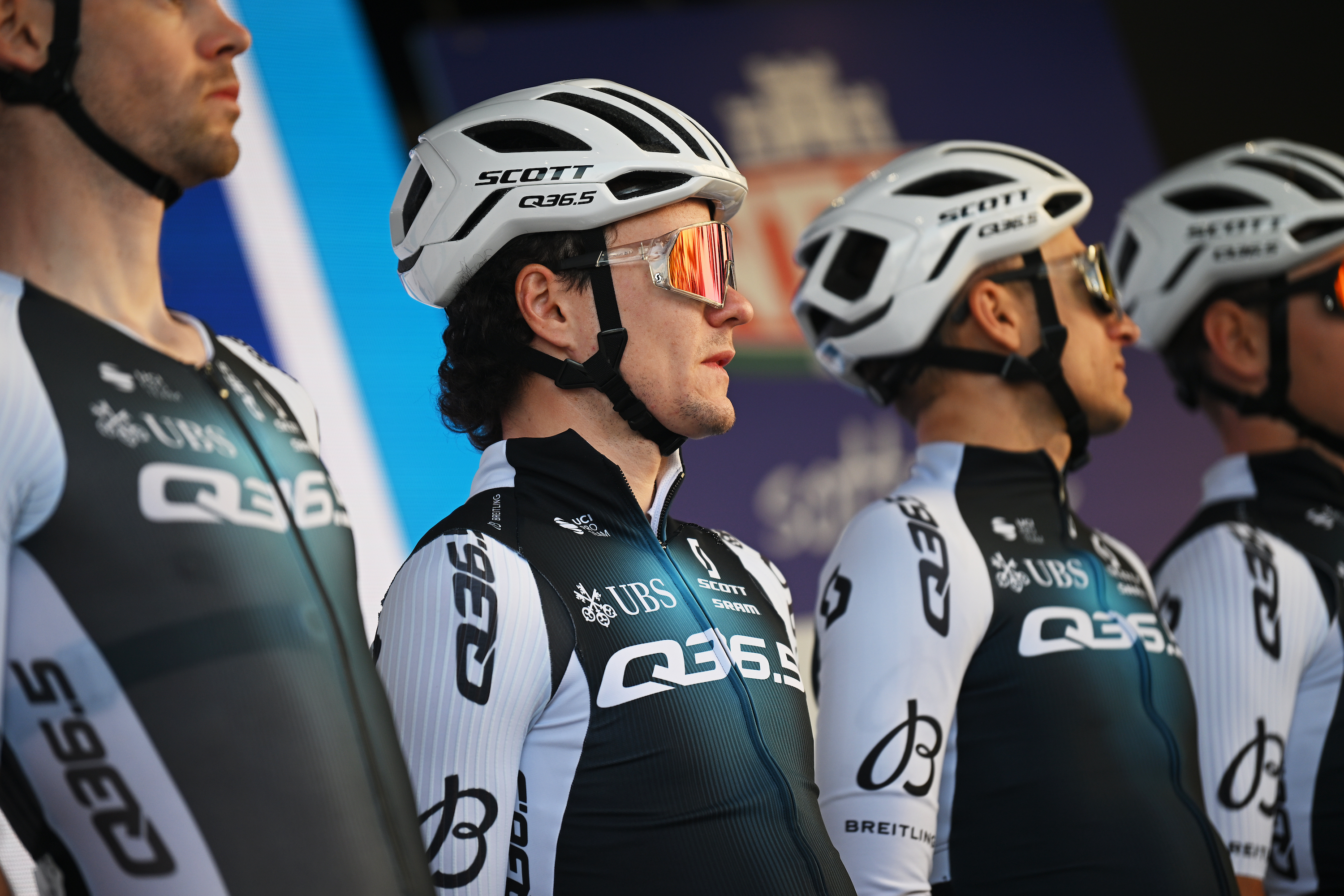 'I thought it would be dark by the time I got here' - Joey Pidcock, the last rider to finish Paris-Roubaix, on his brutal day out
'I thought it would be dark by the time I got here' - Joey Pidcock, the last rider to finish Paris-Roubaix, on his brutal day outQ36.5 rider finishes outside time limit, but still completes race with lap of the Roubaix Velodrome
By Adam Becket
-
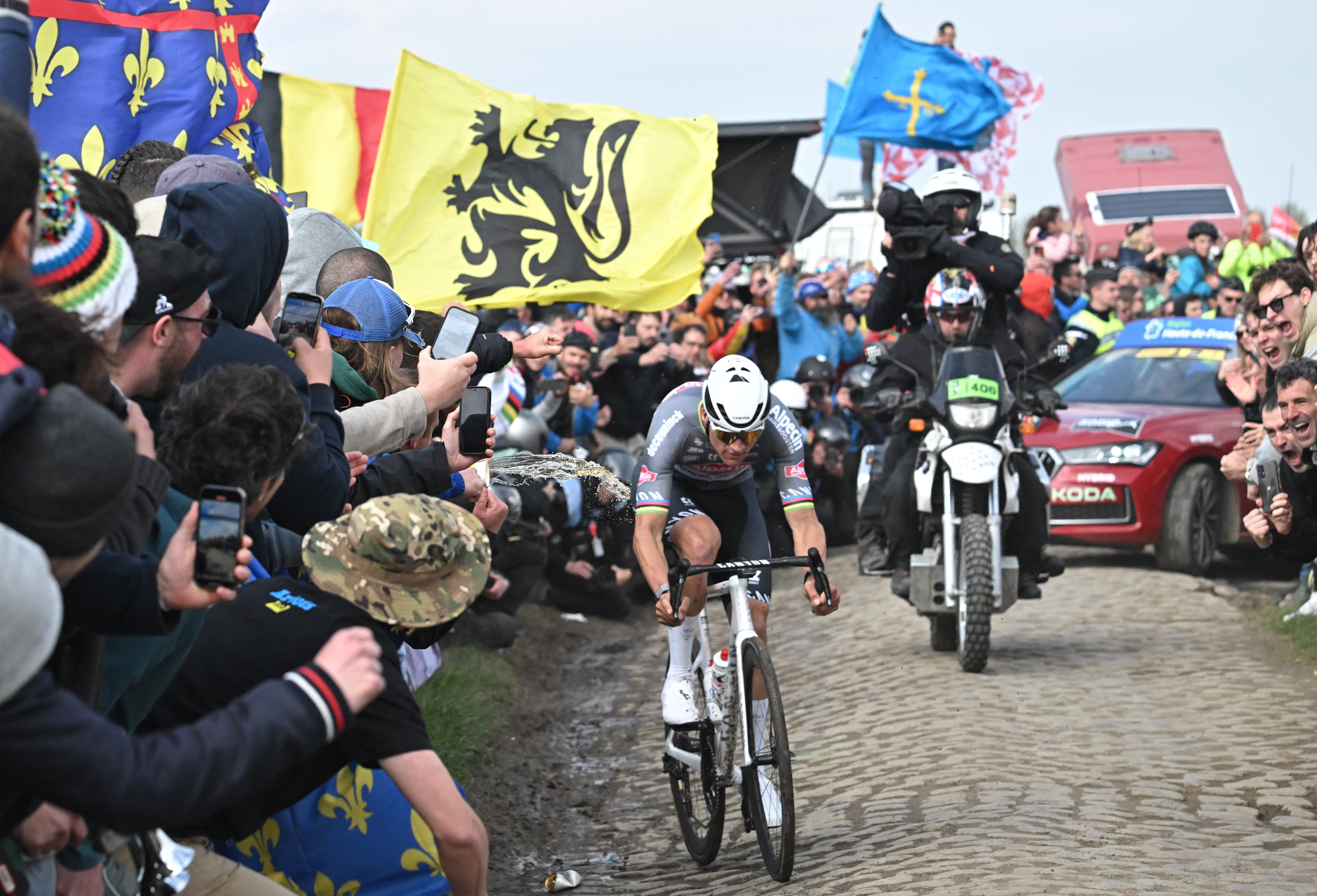 'It was like a stone hitting my face' - Mathieu van der Poel calls for 'legal action' after bottle incident at Paris-Roubaix
'It was like a stone hitting my face' - Mathieu van der Poel calls for 'legal action' after bottle incident at Paris-RoubaixThe winner was hit by a bottle in the face on Templeuve, sector 8b
By Adam Becket